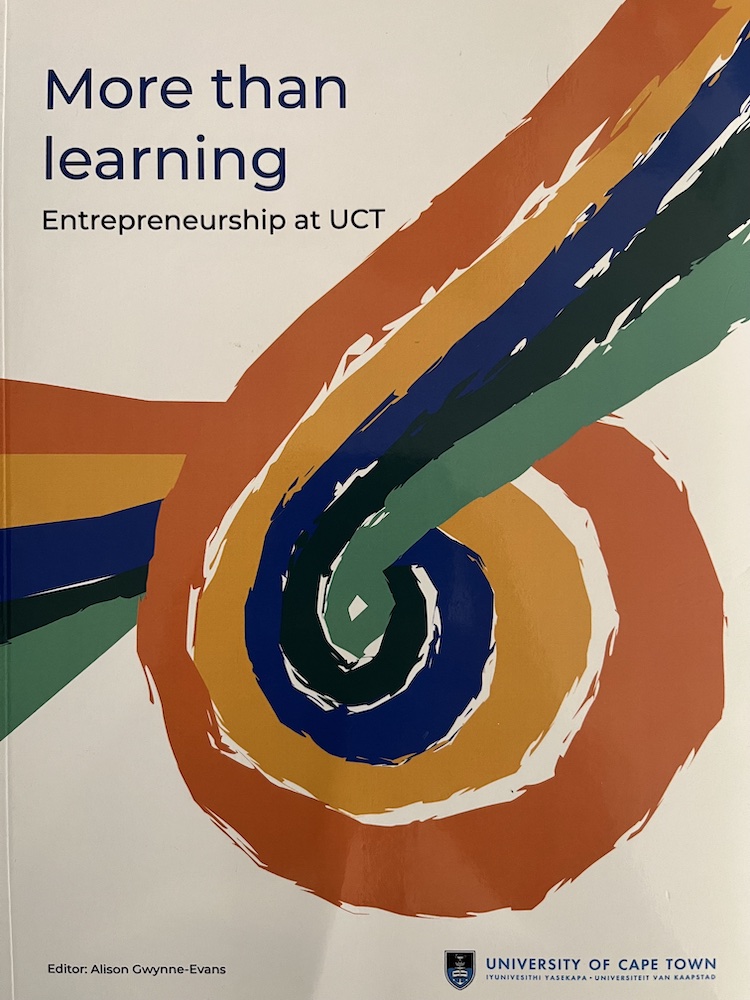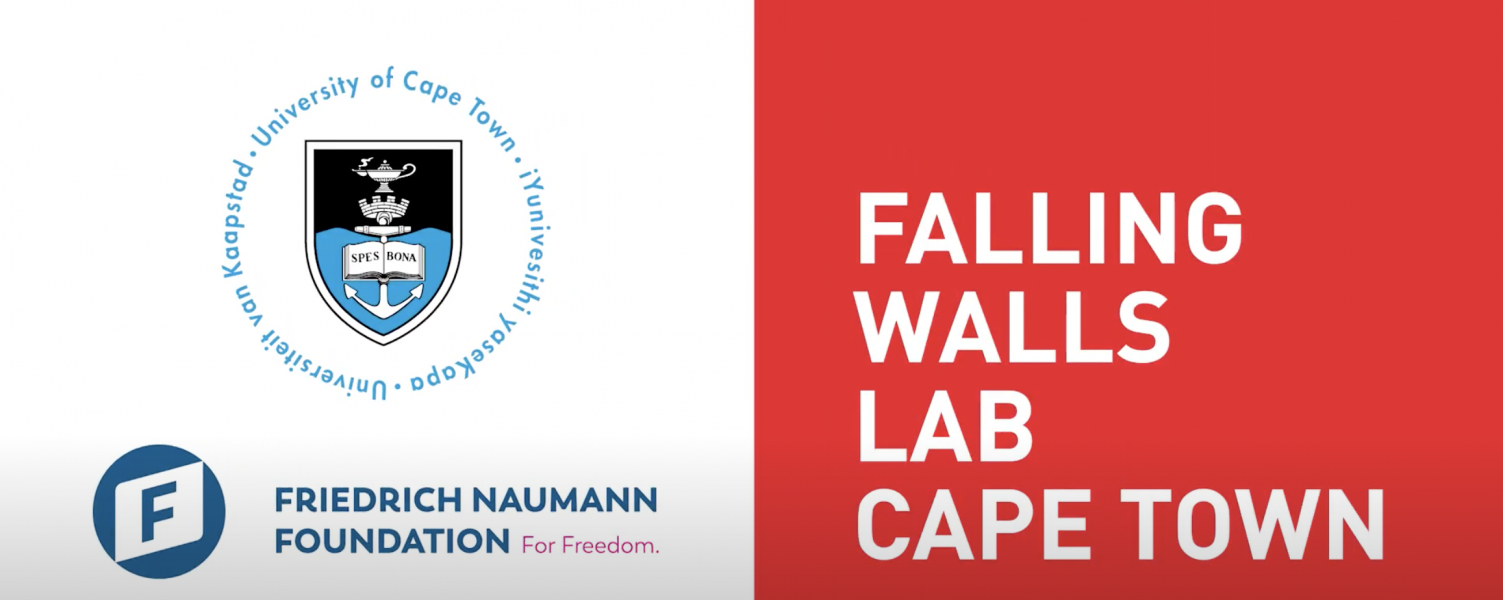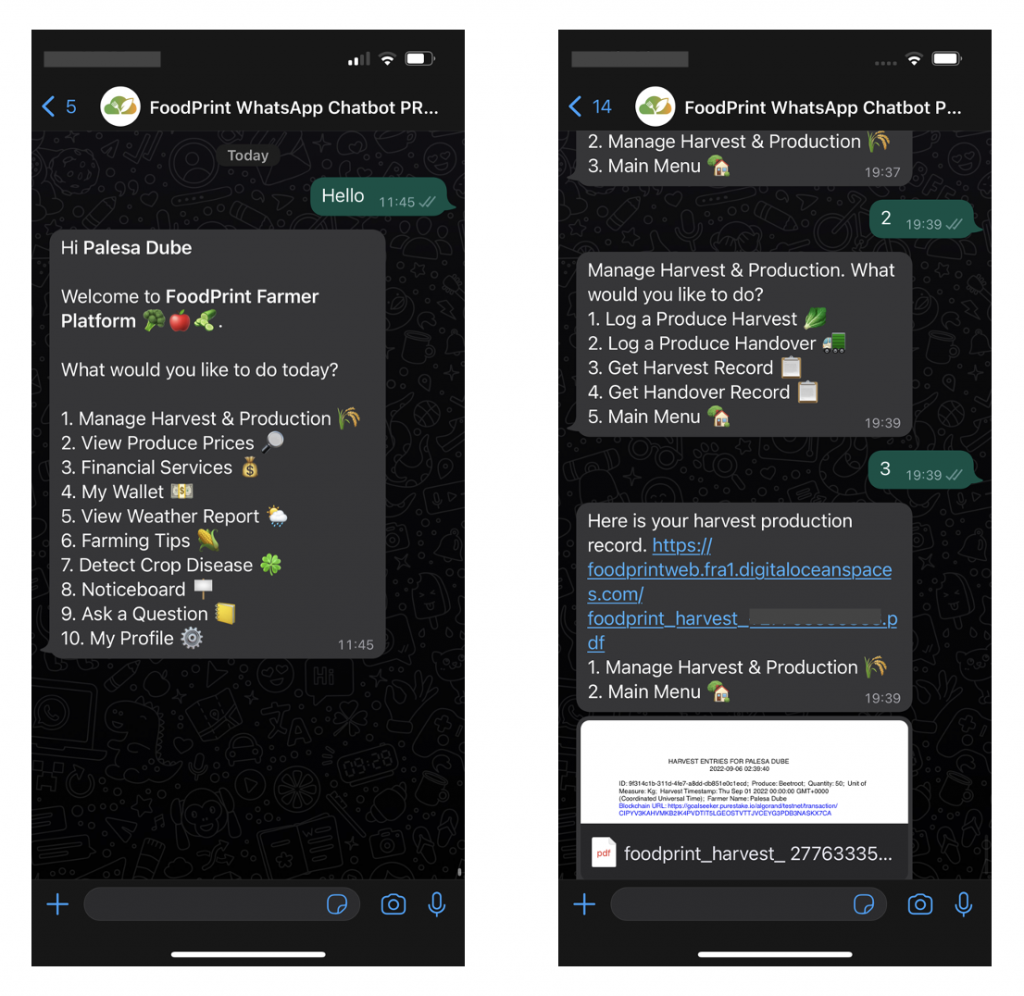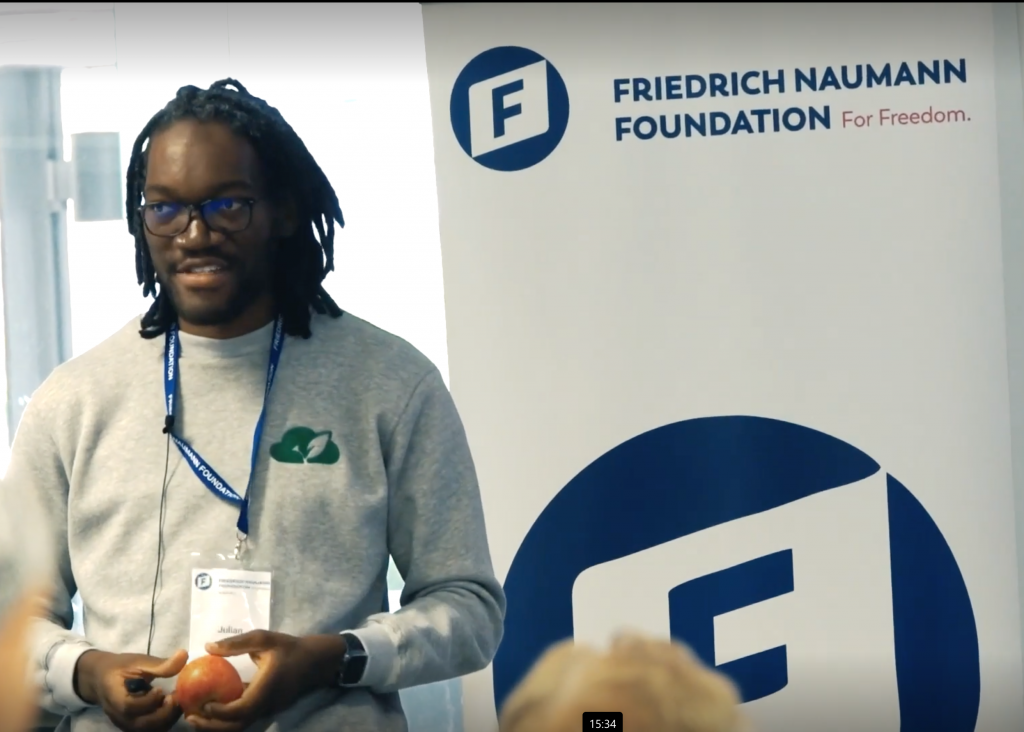The University of Cape Town (UCT) has recently published an entrepreneurship book titled More than learning: Entrepreneurship at UCT which describes the UCT entrepreneurial ecosystem and profiles some UCT entrepreneurs (both current students and alumni). The book, aptly named, comes at a time when the role of universities as learning institutions is evolving and aligns perfectly with UCT’s Vision 2030, which is to “Unleash human potential to create a fair and just society“! Entrepreneurs take risks, they dig deep into their human potential. Paraphrasing from Guy Raz, author of How I Built This, entrepreneurs push boundaries, they explore unchartered territory and build products, services or bring ideas that become accessible to (and often change) the world.
Entrepreneurship requires a problem to be solved, a problem solver and a supporting environment to bring an idea to life. The Entrepreneurship at UCT book, edited by Alison Gwynne-Evans, describes the initiatives and structures at the institution that enable entrepreneurship – the UCT environment, and showcases some of its problem solvers and the problems they are solving – the UCT entrepreneurs and their startups. The initiatives and structures in the book, including the UCT Solution Space, the annual UCT Genesis Project, Design Thinking at the Hasso Plattner Design-Thinking School Afrika, and the Pitch UCT, all offer support, platforms and pathways to entrepreneurship.
The book also profiles a number of UCT founders and the startups they are running, which span a diverse range of verticals including an African language learning platform, an online coding school and an agency supporting traditional Afrikan beer homebrewed by women. Some of the startups include Zaio, Vambo Academy and FoodPrint. Zaio, founded by Mvelo Hlope, creates a personalized learning experience to learn how to code and build digital solutions. Vambo Academy by Chido Dzinotyiwei is an online platform that aims to teach African languages and share various aspects of African heritage. FoodPrint, which I founded, is an agri data platform which connects farmers to information and financial services.
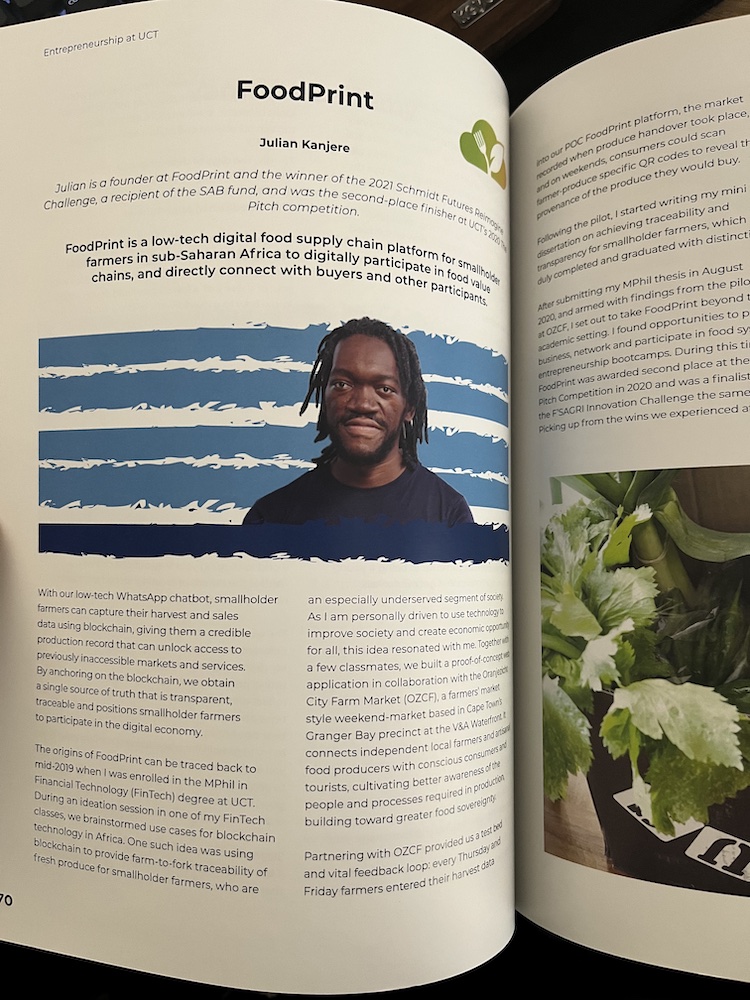
Read more about the book launch here and access the book online on OpenUCT.
